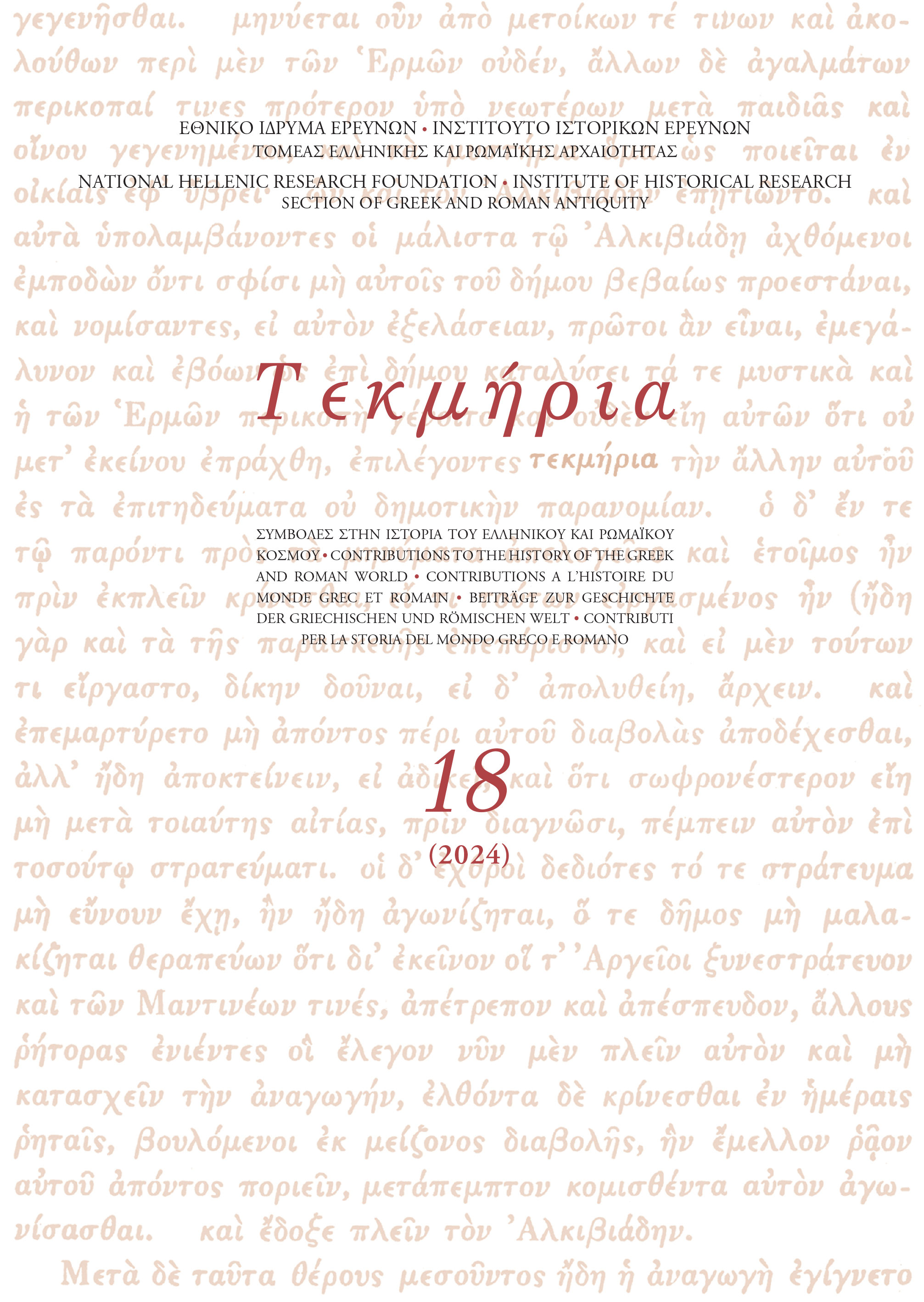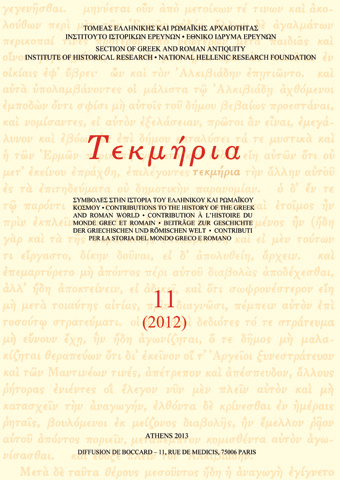Deconstructing a Prussian Myth: The Athenian Standards Decree (IG I3 1453a-g)
Περίληψη
This article analyzes the clauses of the Athenian Standards Decree, which has long been interpreted as banning allied cities from minting their own coinage. It interprets the Standards Decree not as a sign of Athenian imperialism, as previously thought, but as a technical financial measure aimed at streamlining tax collection within the empire. It examines evidence from mints, hoards, and Athenian financial documents that cast doubt on this traditional interpretation. Following other scholars who have questioned the conventional view, the article introduces additional evidence to support an interpretation of the decree as a purely financial measure. Oaths in treaties between Athens and her allies are examined to show that all restorations of capital punishment in the missing part of the Bouleutic Oath are untenable because the Council did not have the power to impose punishments over 500 drachms. The article rejects previous attempts to see an allusion to the decree in a passage from Aristophanes’ Birds (spring 414 BC) and to date it shortly before 414 BC, because of the manuscript tradition, ancient scholia, the passage’s meaning, and the decree’s purpose. Instead, the mention of four districts of the Athenian Empire and the inclusion of weights and measures alongside coinage point to a date in the autumn of 413 BC, coinciding with the introduction of the eikoste (a 5% tax). The article argues that through this decree, Athens attempted to increase revenue and to collect significant quantities of Attic currency. How- ever, this measure did not last long; Athens reintroduced the tribute system most probably sometime after the decisive sea battle of Cyzicus.
Λεπτομέρειες άρθρου
- Πώς να δημιουργήσετε Αναφορές
-
Psoma, S. E. (2024). Deconstructing a Prussian Myth: The Athenian Standards Decree (IG I3 1453a-g). Τεκμήρια, 18, 231–282. https://doi.org/10.12681/tekmeria.38341
- Τεύχος
- Τόμ. 18 (2024)
- Ενότητα
- Άρθρα

Αυτή η εργασία είναι αδειοδοτημένη υπό το CC Αναφορά Δημιουργού – Μη Εμπορική Χρήση – Παρόμοια Διανομή 4.0.
Οι συγγραφείς των άρθρων που δημοσιεύονται στα Τεκμήρια διατηρούν τα δικαιώματα πνευματικής ιδιοκτησίας επί των άρθρων τους, παραχωρώντας στο περιοδικό το δικαίωμα της πρώτης δημοσίευσης. Άρθρα που δημοσιεύονται στα Τεκμήρια μπορούν να χρησιμοποιούνται ελεύθερα για μη κερδοσκοπικούς σκοπούς, χωρίς δικαίωμα τροποποίησης (δημιουργία παράγωγου έργου), με αναφορά στο συγγραφέα και στην πρώτη δημοσίευση. Το Εθνικό Ίδρυμα Ερευνών διατηρεί το δικαίωμα να δημοσιεύει, να αναπαράγει, να παρουσιάζει στο κοινό, να διανέμει και να χρησιμοποιεί άρθρα που δημοσιεύονται στα Τεκμήρια σε οποιοδήποτε μέσο και μορφή, είτε μεμονωμένα είτε ως μέρη συλλογικών έργων, για όλο το χρόνο διάρκειας προστασίας της πνευματικής ιδιοκτησίας και για όλες τις χώρες του κόσμου. Αυτό περιλαμβάνει, ενδεικτικά και όχι αποκλειστικά, το δικαίωμα δημοσίευσης των άρθρων σε τεύχη του περιοδικού Τεκμήρια, αναπαραγωγής και διανομής μεμονωμένων αντιγράφων των άρθρων, αναπαραγωγής ολόκληρων των άρθρων σε άλλη έκδοση του ΕΙΕ, και αναπαραγωγής και διανομής των άρθρων ή της περίληψης τους με χρήση πληροφορικού συστήματος αποθετηρίου.




